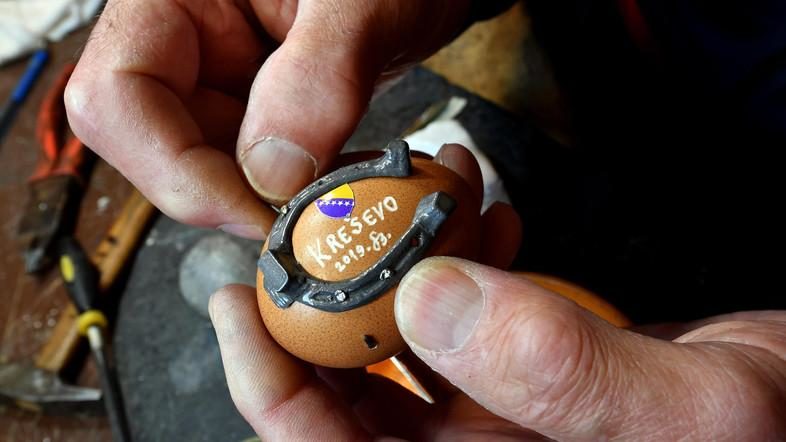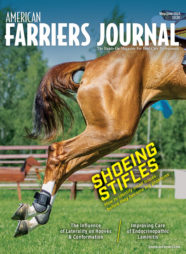There might be a shoeing case that leaves you feeling like you’re walking on eggshells, but in Bosnia, master blacksmiths literally nail shoes onto eggs, according to Alarabiya. Part of an Easter tradition, blacksmiths are required to attach a miniature horseshoe to an egg — without breaking the shell.
Seventy-one-year-old Stjepan Biletic wants to have this ancient tradition recognized by the United Nations Education, Scientific and Cultural Organization (UNESCO) to be included as part of the world’s cultural heritage.
“That is the most beautiful gift one can offer to a friend, neighbor, a girlfriend, or wife,” says Biletic.
And egg-cellent gifts they do make. Biletic works all year long on his shod eggs, selling them to help make ends meet as a retired teacher. In the Easter season, he is especially busy. His eggs sell for about $3.30 to $8.40 per piece.
The practice began in the 18thcentury to demonstrate the skill of blacksmith apprentices. Originally done with iron, the eggs are shod with lead by Biletic because it’s a more flexible metal.
“The shod egg was, at the time, analyzed by the masters,” Biletic says. “If it was intact, if the shell was not damaged, they would extend the hand to the apprentice to congratulate him.”
The apprentice would then be welcomed into the fellowship, and the egg was the diploma.
Biletic and a few others are preparing the case to present to UNESCO to include this traditional craft on the list of the world’s intangible cultural heritage. Based on historical sources, the world’s first shod egg was done in Kresevo, Biletic found.
However, the eggs look a little different these days. Biletic decorates his shod eggs in addition to shoeing them, so customers can buy an egg in the colors of their favorite soccer team.








Post a comment
Report Abusive Comment